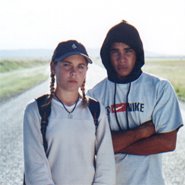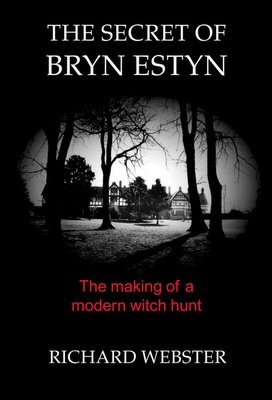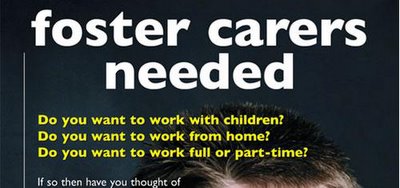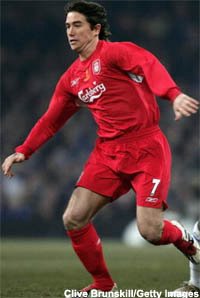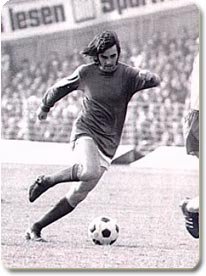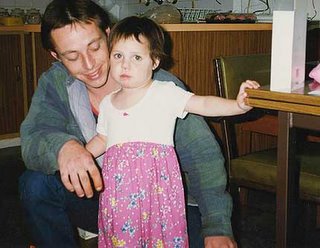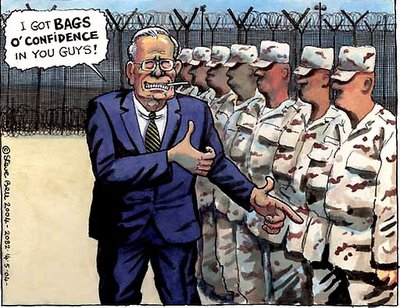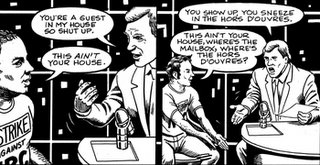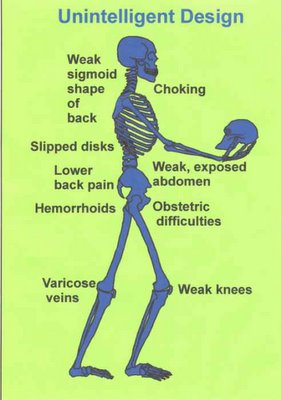Amused by a recent program on Richard III of England, in which substantial evidence was claimed for the ‘illegitimacy’ of Richard’s big bro, Edward IV, thus throwing into question all the wearers of the crown thereafter.
I read an impressive biographical tome on Richard III at age fifteen or sixteen, and many of its findings are echoed by this program – that is, that Richard was a loyal brother during Edward’s reign and a good administrator in the north. His seizure of the throne was generally popular, and its brutality should be seen in the context of the time. There’s virtually no evidence that he had the hunchback of Shakespearean fame, and some of his portraits were touched up in Tudor times to make him look more villainous.
All of this was more or less familiar ground for me, including the probability that he had the princes murder

ed in the tower, as he felt he had no real choice in the matter.
What was new was the claim, based on recently unearthed evidence, that Edward was a bastard.
Edward IV - a likely bastardThis was a claim made by Richard at the time, in order it seemed to undermine the claim to the throne of Edward’s son, Edward V, the elder of the two princes in the tower. Up until now most historians have dismissed the claim, understandably enough, as a ploy by Richard to bolster his right to the crown, even though it was often noted in Edward’s time that he looked nothing like his dad, Richard Duke of York, the Yorkist claimant to the throne during the wars of the roses.
Even the current
Wikipedia article on Cecily Neville, the mother of the three bros, Edward, George (Duke of Clarence) and Richard, argues against Edward’s illegitimacy, on the basis that he was very close to and much supported by his dad. The claim goes that the rumour was spread not by Edward’s ever-loyal youngest bro Richard, but by the treacherous middle bro George, of butt-of-malmsey fame.
The latest evidence, though, seems decisive. It turned up in a church at Rouen, where Edward was born. The precise date of Edward’s birth is there recorded, and it seems it was impossible for dad Richard to have been in attendance at the conception, as he was away at the wars. Always a bad sign. Historian Michael Jones, who made the discovery, also made the point that the birth wasn’t much celebrated, it was rather hushed up compared to the birth of an earlier son (who died in infancy). Very unusual for a son-and-heir of a major noble not to be feted with full ceremony.
There’s also the fact that Edward was a strapping six-footer who looked nothing like his little dad, whereas little bro Richard was his dad’s spit, so to speak. Lots of thought-provoking info on the subject is provided
here.As I say, I find all this highly diverting, because even if you take seriously the notion of blue blood I suspect you’ll find, as far as the British monarchy is concerned, that it’s been tainted several times over since 1066. Presumably Edward’s bastardry wouldn’t have made too much difference since his line ended at Bosworth Field, two years after his own death. The first Tudor king, Henry VII, had very little claim to the throne, in terms of blue blood, as far as I’m aware (I’d have to check on that), and I very well recall that Henry IV (of ‘uneasy lies the head that wears a crown’ fame), who deposed Richard II, was ever-concerned about his legitimacy.

So for fun, let’s do some research.
Bill the Conk - the original bastardHow blue-blooded was William the Conqueror? Not at all, since he was ‘illegitimate’. To his contemporaries he was known as William the Bastard. Not that this stopped him from cutting a formidable figure in Normandy before invading England. He was only a distant cousin of Edward the Confessor, but in any case in those days the crown usually fell to the most powerful nobleman (eg Harold). Arms mattered more than blood, by and large – though William
was grand-nephew of Emma, wife of Ethelred and later Canute.
After William the Bastard's death the succession was legitimate enough, but there was some dispute on the sudden and possibly suspicious death of William II in 1100. His younger brother quickly had himself crowned as Henry I, even though the crown had been promised to the eldest bro Robert (who after William the Bastard's death had succeeded to the lands in Normandy). So you could say

this was a different sort of bastardry (though apparently Robert was unpopular and would probably have been a disastrous king, so hey the end justifies the means).
King Stephen - a good-natured bastardHenry's death in 1135 caused more succession problems. His only surviving legitimate offspring was a woman, Matilda. He'd tried to secure her succession, but the nobles didn't like the idea of a woman ruling them, so Stephen, Matilda's cousin, and William the Bastard's grandson through his very smart and talented daughter Adela, staked his claim. He'd been brought up at the English court so he was acceptable enough to their nobles, but it proved a bumpy ride, because Matilda was keen to claim the throne, and Stephen turned out to be a good-natured bastard without his grandad's ruthlessness. So there was a civil war of sorts, only resolved at Stephen's death in
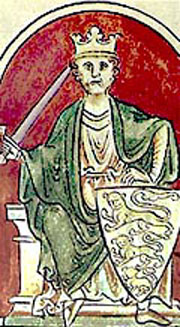
1154, when the succession returned to Matilda's line, her son becoming King Henry II (Stephen's son and heir, Eustace, having conveniently died the year before).
Richard I - bloody anti-semitic bastard
Now, the whole issue of bastardry becomes quite confusing at the end of Henry II's reign, since most of his legitimate sons (including Henry 'the young king', Richard, Geoffrey and John) were quarrelsome, murderous bastards (Richard eventually doing the old man in), whereas his bastard son Geoffrey remained steadfast and true throughout his life, and was the only child at his deathbed.
Richard of course became king, and was succeeded by John when he died childless (apart from the odd bastard), though there was a rival claim and perhaps technically superior claim by Arthur, son of John's late older brother Geoffrey. John eventually had Arthur murdered (a murder which makes for a memorable scene in Shakespeare's
King John). John's son was crowned Henry III in 1216, and the succession was straightforward for a while, until Richard II's reign came to an abrupt end in 1399. He died in Pontefract Castle, possibly having been starved to death, and the bastard responsible for this, his cousin Henry Bolingbroke, naturally succeeded him as Henry IV. Now, Richard died childless, but he'd named an heir, Roger Mortimer, who was in fact technically next in line. Roger died a year before Richard, but he had a son, Edmund, who should've been king, but, being only eight years old at the time, he was no match for the usurper (who in any case treated him relatively kindly). This rival line to the throne, though, fueled the later wars of the roses.
The wars of the roses was a dynastic struggle between the houses of Lancaster (in the red corner) and York (in the white corner). Henry IV was the first Lancastrian king, and he traced his claim to the throne through his dad, John of Gaunt, first Duke of Lancaster, third son of Edward III and uncle of Richard II. After Henry IV usurped the throne, he was succeeded by his son Henry V, but the Lancastrian grip on power hit a snag when Henry V died relatively young in 1422, leaving the throne to his three-month-old son, Henry VI.
Meanwhile, the house of York also claimed descent from Edward III, through his second son Lionel. Lionel was the grandfather of the afore-mentioned Roger Mortimer and great-grandfather of Edmund Mortimer, but as Edmund died without issue it was through his sister Anne that the Yorkists claimed the throne. Anne married Richard, Earl of Cambridge, in 1406. Richard was also a grandson of Edward III. Their son Richard Plantagenet, Duke of York, born in 1411, became a very powerful noble, and began to press his claim...
So, to return to the reigning king, Henry VI. The brothers of Henry V acted as regents during his infancy, but he began to assert some authority from 1437. In 1445 he married the formidable and fascinating Margaret of Anjou, who bolstered the Lancastrian side. However, the king's deteriorating mental condition, not to mention the deteriorating state of the nation, worked in favour of the Yorkists under Richard.
The wars of the roses got under bloody way with the first battle of St Albans in 1455, which was a complete victory for the Yorkists. Henry VI was taken prisoner. Events see-sawed for a while culminating in the battle of Towton (1461), the bloodiest battle ever fought on English soil. This battle was a victory for the now-known-to-be-a-bastard Edward, son of Richard of York (who'd been defeated and killed a year before at the battle of Wakefield).
Edward, though a bastard, turned out to be a reasonable king, at least an improvement on Henry, but fortunately his bastard line was snuffed out by his younger and more legit bro Richard in 1483. But Richard was killed two years later by the forces of Henry Tudor, a more or less obscure apirant to the crown.
And so we get to the shenanigans of the Tudors - but let's stop there. So many bogus claims to legitimacy, you can't take too much of it seriously (except when you realise how much blood has been shed). Of course it's fascinating to trace ancestry (and I've just learned that Jesus Christ was most likely a bastard, but more of that anon), but in terms of blue blood, royal lineages etc, it's a huge joke. I'll let Wikipedia have the final say:
Henry's claim to the throne was tenuous and based upon a lineage of illegitimate
succession. However, this was no barrier to the Throne; inheritance was not the
sole method of becoming Sovereign. Claims could also be based on nomination (by
the previous Sovereign), statute, prescription (de facto possession of power)
and, as was the case with Henry VII, conquest.
Anyway, the rich and powerful usually have the most impressive lineages - they pay the best genealogists and historians to prove it.


